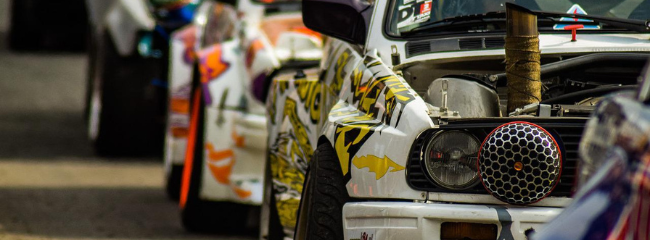In recent weeks I’ve been in conversations and workshops with arts leaders striving toward change and recovery. As I was sharing some of the themes from these conversations with a group of TRG team members, one of them offered this metaphor: “Jill, if the race to recovery has begun, why is the field stalling? Its like some companies showed up to the race with a governor on their engines!”
Governors? Engines? If you know me, you know that these aren’t things I think about regularly. But our team and I played the metaphor out and I’ve concluded that I agree. Give me a minute to expand, and I’ll be interested to see if you agree, too…
We all know that late this winter, the leaders in many countries, including Prime Minister Johnson in the UK and President Biden in the US, made the decision that masks are no longer a required precaution against COVID19. With contagion rates then in steep decline and mandates abating, it seemed the “checkered flag” was being waved to let businesses know that the race to recovery was formally “on”. Our sector responded; some opened fully for the first time in two years, others expanded their offerings beyond pandemic norms. The media noted and often celebrated the re-opening; customers responded. At TRG, we began to see evidence of attendance growth compared to the past two years in our Benchmark data and hear client stories of sales success and demand. While some customers continued to stay away for safety reasons, many were grateful to have the opportunity to attend live events and exhibitions mask-free. In either case and all the way around, a mood of optimism began to take hold.
The engines revved, so to speak.
Much has changed in the past four months, including the sustained ground war in Europe, record-high inflation, and bearish sentiment taking hold in investment markets. Arts and cultural budget planning is taking place for upcoming 2023 and 2024 cycles, and safety nets like the Cultural Recovery Fund and Shuttered Venue Operators Grants (SVOG) look precious and life-giving, indeed. Arts and culture is yet again under threat to be the hardest hit industry in what might be the next Great Recession.
Now let’s get back to races and engines.
My TRG colleague gave me a history lesson: since 1970 US and British car racing standards have increasingly mandated something called restrictor plates, or governors. Governors limit power that vehicles can produce, making races safer than if drivers can self-determine how hard they might push a car to win. Why? This prevents reckless drivers from exceeding speed thresholds that could negatively impact everyone’s safety on the track.
It also changes the race.
Building cars capable of the fastest speeds no longer was the name of the game. Instead, drivers had to decide to adapt new techniques to compete. To win, they had to learn to more efficiently “draft” behind the cars in front of them, or to out-maneuver lane position, or to just be the driver with the most endurance. In many ways, governors create similar vehicle performance for all racers, and it is left to the driver themselves to determine the outcome.
Drivers had to make new decisions to win the race
There are insights here. When the rules or externalities change it is a challenge to our progress—like a governor that limits our collective performance— but in most cases these changes are consistent for all the cars in the race. This shifts the outcome of the race to one thing: the decisions of the driver- which in this metaphor, is you.
Don't Resist Recovery. Accelerate Into It.
Here’s the truth, leaders. Recovery is a decision, not a reaction, or even a result. Leaders who allow externalities to “govern” their organization’s future stymie decision-making that leads to action that achieves recovery. Leaders who focus on negative, pessimistic, doubt-filled questions allow that culture to work like a restrictor plate on organizational performance. As one of our clients recently said, “…let’s get to the verb, team! Don’t tell me what I CAN’T do, tell me what I CAN.”
Here's some evidence that decision-making can generate results:
- A large music festival in the Midwest is on track for a record year of membership acquisition in 2022 and up 34% in revenue over their previous best in spite of a cold pipeline.
- A ballet organization in Utah exceeded its 2021-22 single ticket sales budget by 13% and its 2021-22 subscription campaign by 22%.
- A theatre in the UK launched their first segmented fundraising campaign seeking 400 gifts totaling £10k in revenue and instead received over £22k from over 600 gifts.
There are many encouraging stories like this in our sector; stories of leaders making bold decisions to recover more quickly than many thought possible. In reaction to that, think about your countenance, the biases you have and the questions you’re asking. Are they questions that challenge your team toward recovery, or are they questions or biases that are “governing” performance? Data will either confirm or challenge your answers, biases and instincts.
Important research on the point: Harvard Business Review mounted a study of the past three global recessions, studying nearly 5,000 global companies breaking the data into three periods: the three years prior, the three years after, and the recession years themselves. The data is startling. The companies that cut costs faster and deeper didn’t necessarily flourish. They had the lowest probability (21%) of pulling ahead of the competition when times and systems recovered. Growth-focused companies didn’t fare much better. Just 26% had the chance of becoming leaders after a downturn. What’s the answer? According to HBR research, companies that master the delicate balance between cutting costs to survive today while simultaneously investing to grow tomorrow do well after a recession.
Let’s talk about this. Tell me your thoughts and experiences and reactions by emailing me at jsrobinson@trgarts.com In my next blog, I’ll describe the DATA and PEOPLE elements of recovery as we see it in our client and industry work at TRG Arts. Stay tuned for additional posts in the next week or two, and I’ll share the feedback you’ve given me.
But for now, hear me say this: recovery is a decision. Let’s make the decision to ensure that creativity thrives in our world now, and forever.

